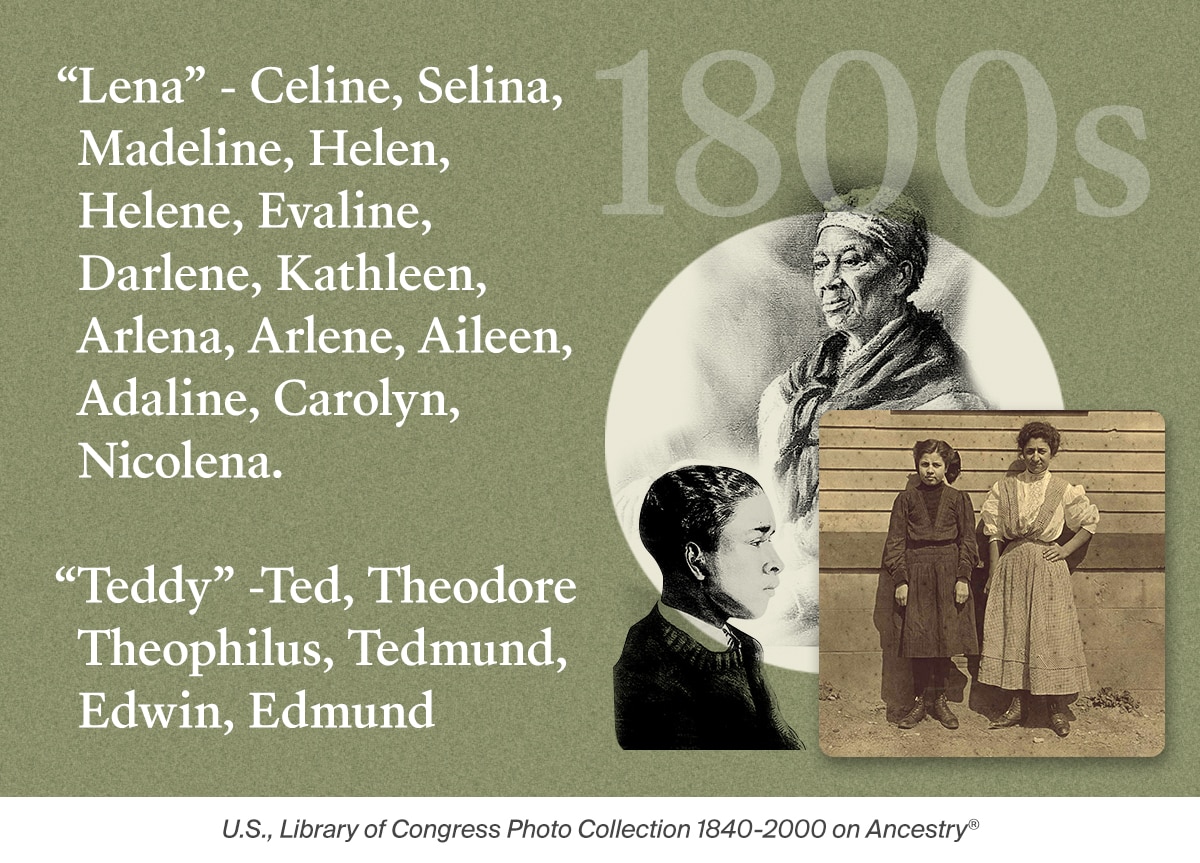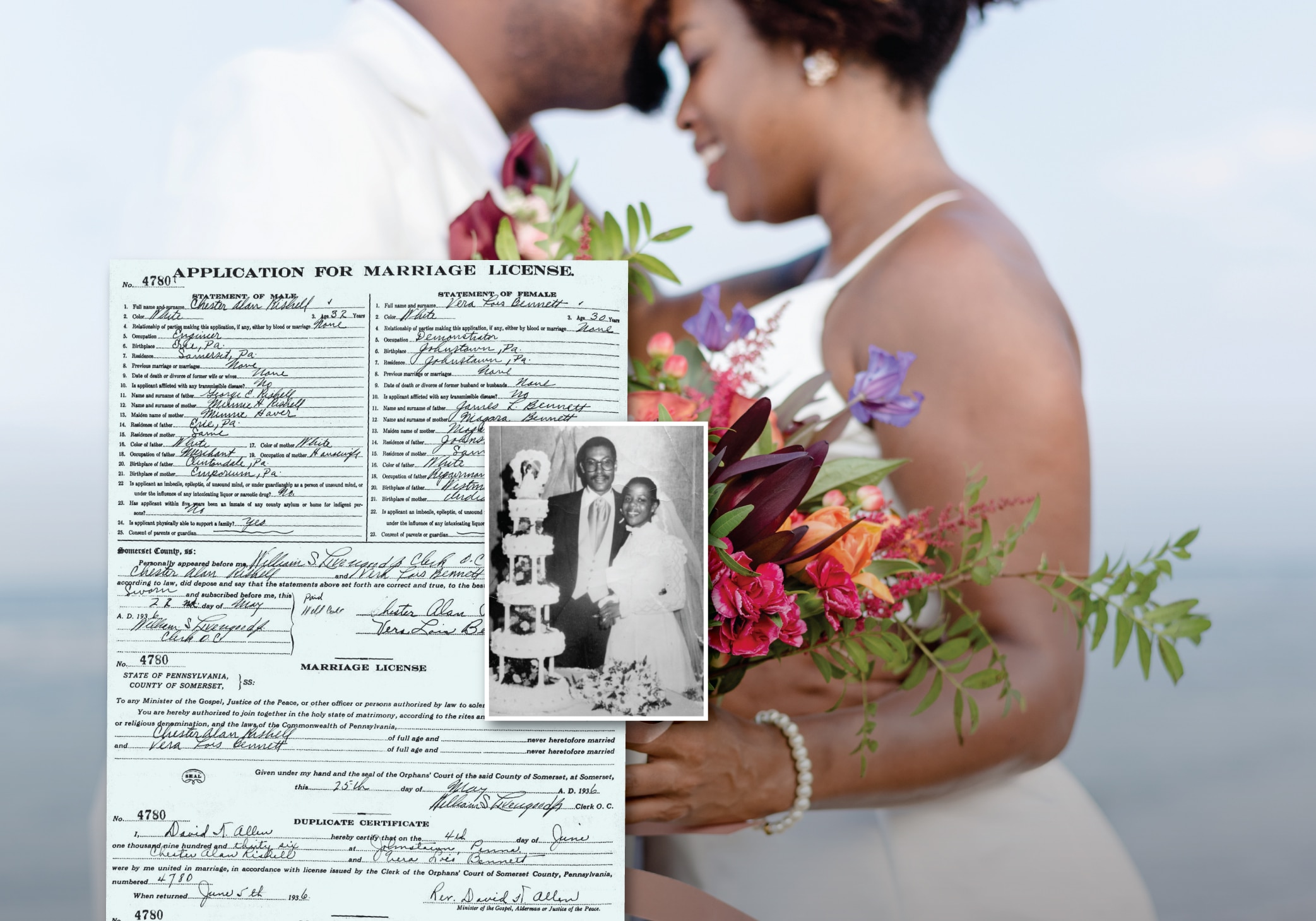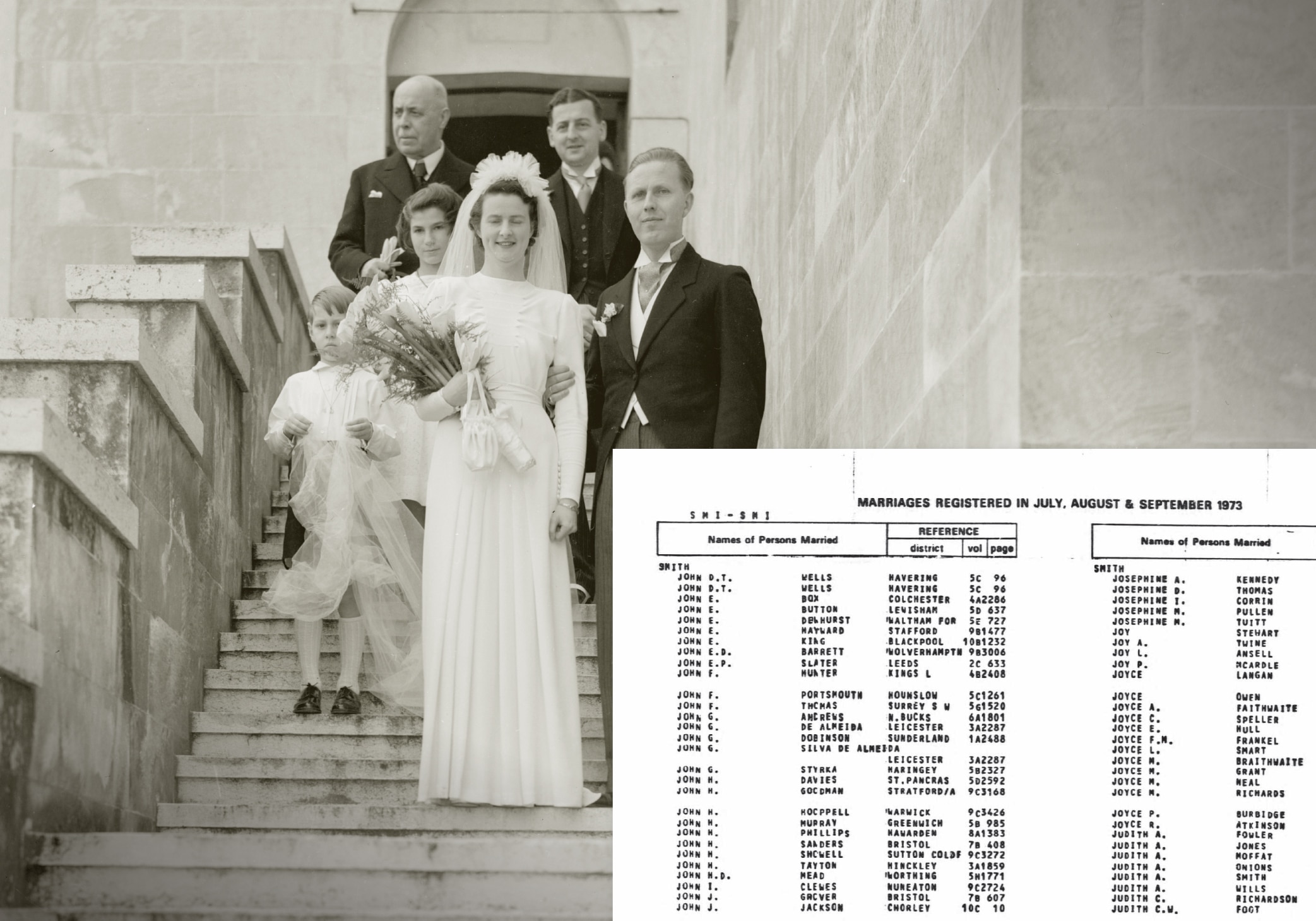Nicknames certainly aren't new. You may be "Mickey" or "Beto" to friends and family, but "Michelle" and "Alberto" in the workplace or on your passport. So how might this affect your family history research? If you aren’t familiar with historical nicknames, the unfamiliar name variations can cause some interesting challenges.
For example, if you’ve come across a Nabby, Crese, Dyer, or Con on a 1870 record, but you were searching for Abigail, Lucretia, Obediah, or Cornelius, then did you actually find your target person?
When searching historical records, remember that someone’s first name on a record may actually be a nickname. You could find one version of a name on birth or baptism records, and another one on a marriage record. For example, "Mary" or "Maria" on a baptism record might be "Mimi" or "Molly" on a marriage record.
Why Do Nicknames Appear in Census (and Other) Records?
Over the years, when U.S. census workers asked for someone's name, various people could have responded, such as parents, spouses, or other relatives. And they sometimes gave different answers or versions of a first name, including nicknames, to the enumerator. Everyone filling out a form decided on the spot which name to record. Five different censuses over fifty years might have shown the same surname spelling, but a person's given name could be written five different ways. Someone named Charlotte Elizabeth might be listed as Charlotte, Lottie, Charlie, Lizzy, or Beth over the years—or all of the above. What one person noted as Lorenzo or Laurent on one census record may say Lawrence or Larry on another.
Some Nicknames Are Unexpected
Keep in mind that nicknames aren't always obvious. Did you know that Peggy was a common historical nickname for Margaret, and Polly was another common nickname for Mary?
Or maybe someone's given name on their baptismal record shows "Ellen," but the marriage record shows "Nellie," a common historical nickname for Ellen. Perhaps William is listed on another record as Willie or Liam.
Even in more modern times, the young Queen Elizabeth II couldn't pronounce her given name and said "Lilibet." But as she was a member of the royal family her official name was always recorded, not her nickname.

What Nicknames Were Popular in the 1700s?
When you look for your 18th-century ancestors in early American records, it's interesting to know that some of the most common given names also had nicknames, such as Elizabeth (Bess, Betsey, Liz), Sarah (Sadie, Sally), and Frances (Fanny, Frankie).
Other common nicknames in the 1700s include Cleda (short for Cleophas), Hitty (for Mehetable), Winnet (for Winifred), Thirza (for Theresa), and Nonie (for Joan).
You may also come across nicknames such as Cuddy (short for Cuthbert), Fate (for Lafayette), Quill (for Aquilla), Dobbin (for Robert), or Hiley (for Hiram).

What Nicknames Were Used in the 1800s?
Historical nicknames in 19th-century records may also not be intuitive to a 21st-century mind. For example, Lena was sometimes a nickname for these names, not all of which would be obvious at first glance: Celine, Selina, Magdelina, Madeline, Helen, Helena, Helene, Evaline, Darlene, Kathleen, Arlena, Arlene, Aileen, Adaline, Carolyn, and Nicolena.
Teddy was often a nickname for not only Ted and Theodore but also Theophilus, Tedmund, Edwin, Edward, and Edmund.

20th-Century Nicknames
Given names go in and out of fashion as the decades change, but many of the classics remained popular throughout the 1900s. Top baby names during this century in the U.S. included Mary and Elizabeth, as well as James and John. But by the 1950 census, newer names like Barbara, Patricia, Michael, and David started to appear. Fortunately, nicknames like Barb, Patty, Mike, and Dave are likely to be more intuitive for family history researchers today.
Regional Differences in Nicknames
While you might be unfamiliar with nicknames from earlier centuries, don’t forget to consider possible regional variations as well. For example, in the American South, Mim (pronounced "meem") is yet another nickname for Mary, as is Minnie (although Minnie's given name could also be Amelia).
In your search through records, you may also come across the nickname Beau, which can be short for Beaufort, Beauregard, or Robert—or Beau may be a baby's given name. Bud may be a casual moniker used when you've forgotten someone's name in the South, but it's also a common nickname for Robert, Donald, and William.
Nicknames in Various Languages
Pay especially close attention if you're researching ancestors whose native language you're unfamiliar with, or who lived in—or came from—a country other than your own. Such ancestors may have nicknames you wouldn't think to look for. Here’s a sampling.
Spanish nicknames for José sometimes become "Pepe," which refers to Jesus' pater putativus (putative father). Pater putativus is commonly shortened to "p.p.," and that's where the name Pepe derives from.
Similarly, the Spanish nickname Paco refers to the saint San Francisco de Asís (aka St. Francis of Assisi), also known as the father of the community or pater comunitatis—which, from the first two letters of each word, has gotten shortened to "Paco."
And as in other languages, a nickname could come from a child mispronouncing their own name. A young Rosario may have pronounced their name as Chayo, and the nickname "stuck." Other examples can be found where two names were shortened to one—Juan Pablo may have become Juanpa, and María José, Majo.
Japanese nicknames you might see in records include Kay for Kiyoshi, Nobby for Noboru, and Nan for Nanami. Other nicknames might actually be anglicized versions of Japanese given names, where Ryoichi becomes Roy, Hideki is called Henry, and Joji is known by George.
The Scottish given name Grizel or Grisel is short for Griselda, which itself is sometimes shortened to Gris, Elle, Ellie, or Grace.
Researching Irish family members? It might help to know something about Irish nicknames. For instance, perhaps a baby named Aodhnait went by Annie at home. The name Eoghann is commonly shortened to Hugo, and Moriertagh often takes the nickname Moss. Alexander and Sandy are frequently used interchangeably, as are Owen and Eugene, Moses and Aiden, Bridget and Bessy or Bedilia, and Gobinet and Abigail or Deborah.
How to Discover Nicknames
It's not enough to do a single search for "Heinrich Schmidt" and assume you've found all there is to find. How might you work around the challenge of nicknames?
One way is to try a Soundex search. That can sometimes pick up variations of given names when you’re looking through birth, baptism, census, marriage, and death records.
Another option is to check these alphabetical lists of historical nicknames to see which ones might apply to your family:
A, B, C, D, E, F, G, H, I, J, K, L, M, N, O, P, Q, R, S, T, U, V, W, X, Y, Z
The bottom line: Keep an open mind about what given names and common nicknames to look for in the records, and you're likely to have more success finding your ancestors in archival records. And as nicknames could also appear in newspapers, be sure to look for name variants when searching for that resource for family history information.
Want to learn more about your ancestors and see what nicknames they might have used? Start today with an Ancestry® free trial.
References
"19th C. Old Victorian Nicknames Boys Male Baby Biblical Names Men." Ancestorville Genealogy. Accessed October 21, 2022. https://ancestorville.com/blogs/articles/victorian-male-nicknames.
"20 Tips for Census Research Success." National Archives. Accessed November 21, 2022. https://www.archives.gov/research/census/20-tips-for-census-research-success.
"106 Irish Nicknames for Boys and Girls." The Queen Momma. October 13, 2021. https://thequeenmomma.com/irish-nicknames/.
"A Listing of Some Nicknames Used in the 18th & 19th Centuries." CT State Library. Accessed October 21, 2022. https://ctstatelibrary.org/access-services/nicknames/.
Aplin, Lucy. "Why Was the Queen Called Lilibet? Meaning behind the Name and Who Used the Affectionate Nickname." inews.co.uk, September 9, 2022. https://inews.co.uk/news/why-queen-called-lilibet-meaning-name-affectionate-nickname-1844073.
Fahy, Katrina. "More American." Vita Brevis. Accessed November 21, 2022. https://vitabrevis.americanancestors.org/2018/04/more-american/
"Grace." What’s In A Name? Accessed November 22, 2022. https://www.whatsinaname.net/php/search.php?action=search2&search_name=grace.
"Grisel Baby Name: Meaning, Origin, Middle Name Pairings & More." MomsWhoThink. April 8, 2021. https://www.momswhothink.com/baby-name/grisel/.
Kihm, Sophie. "Colonial Names for Boys." Nameberry, May 2, 2022. https://nameberry.com/list/246/colonial-names-for-boys.
Kihm, Sophie. "Colonial Names for Girls." Nameberry. Nameberry, May 2, 2022. https://nameberry.com/list/245/colonial-names-for-girls.
"Nicknames You'll Only Hear in the South." Southern Living. Accessed November 22, 2022. https://www.southernliving.com/culture/southern-nicknames.
Parra, Rafael. "Common Spanish Nicknames for People’s First Names." Homeschool Spanish Academy. November 30, 2020. https://www.spanish.academy/blog/common-spanish-nicknames-for-peoples-first-names/
"The Problem with Irish Names." Irish Genealogical Society International. Accessed October 21, 2022. https://irishgenealogical.org/cpage.php?pt=25.
Shaw, Betsy, "Liam." BabyCenter. Accessed November 22, 2022. https://www.babycenter.com/baby-names/details/liam-2820.
Tasaka, Chuck. "Nisei Nicknames." Discover Nikkei. June 22, 2017. http://www.discovernikkei.org/en/journal/2017/6/22/nikkei-nicknames/.
"Top names of the 1940s." Social Security Administration. Accessed November 22, 2022. https://www.ssa.gov/oact/babynames/decades/names1940s.html.
"Use Nicknames in Your Newspaper Searches to Find 50% More Ancestor Articles." Accessed November 21, 2022. The Ancestor Hunt. https://theancestorhunt.com/blog/use-nicknames-in-your-newspaper-searches-to-find-50-more-ancestor-articles/.
"Victorian 19th C. Names & Nicknames: Women, Baby Girls, Gemale, Bible." Ancestorville Genealogy. Accessed October 21, 2022. https://ancestorville.com/blogs/articles/victorian-female-nicknames.


